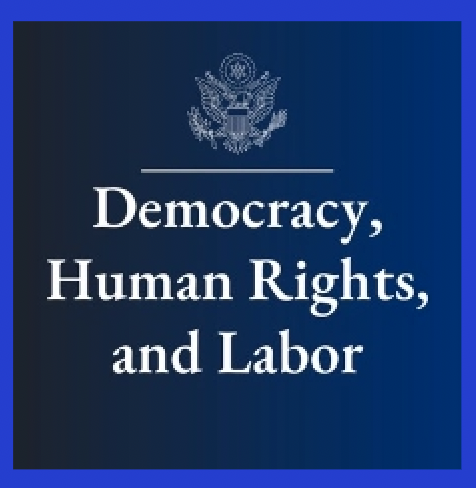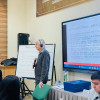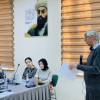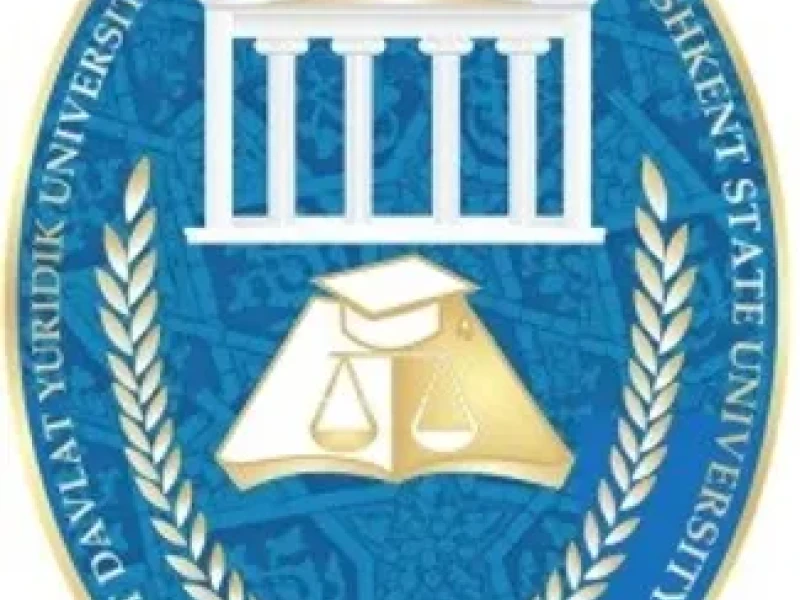
In a recent videocall between Tashkent State University of Law and Boston College Law School, facilitated by Regional Dialogue as part of its State Department’s DRL funded project, distance learning approaches of both educational institutions were discussed. At the initiative of BCLS professor Joan Blum, TSUL Deputy Rector Islambek Rustambekov agreed to present currently employed techniques of distance learning at TSUL and across Uzbekistan. It was agreed this will be a welcome representation of good practice to educational institutions around the world. The article will also be published by BCLS.
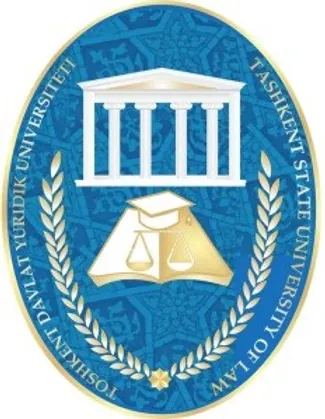
DEVELOPMENT OF DISTANCE EDUCATION IN THE TRAINING OF LEGAL PERSONNEL IN THE REPUBLIC OF UZBEKISTAN DURING THE PANDEMIC
As distance learning gains wider use worldwide, there is an increased need to develop and implement the most effective instructional tools. Distance learning involves the use of innovative methods, tools, and forms of instruction using computer and telecommunication technologies. It provides many benefits, including combining technologies to ensure delivery of study materials to students, providing opportunities for interactive learning, and offering greater opportunities for students to work independently and perhaps more efficiently.
The basis of the educational process in distance learning is intensive and requires independent work of students who are able to utilize a set of special teaching aids to study in places that are convenient for them and according to their individual schedules. Although students work primarily independently, best practices for distance learning require that students be able to contact teachers directly, by phone or through electronic media.
With the emergence of the COVID-19 crisis in early 2020, the Republic of Uzbekistan, like many other countries, imposed a quarantine and suspended in-person education. From 16 March 2020 all students were sent home for a two-week vacation. Although the Republic of Uzbekistan has no separate legislation regulating distance learning, it was decided that distance learning should commence on 1 April. This decision required all higher educational institutions to quickly implement distance learning mechanisms based on the realities of conditions in Uzbekistan.
The COVID-19 pandemic has proved to be a challenge for the entire e-education infrastructure in Uzbekistan. This test was also presented to Tashkent State University of Law (TSUL), the main state higher educational and scientific institution providing training for legal personnel in the country. The singularity of TSUL is in its mono-focus – specialization in the training exclusively in jurisprudence, which allows us to concentrate our efforts on providing high-quality education both for the prospective employment of future lawyers and for developing the career of active workers in Uzbekistan’s justice sector.
Currently, more than 3,500 students are studying at TSUL. The university’s programs include undergraduate and LLM programs, training of research and pedagogical personnel, and advanced training and retraining of lawyers and others who work in the justice sector. Thus, TSUL faces a complex task as it adapts to distance learning.
Fortunately, TSUL had previously begun work on the study of best practices for the organization of distance learning. TSUL created a special working group in connection with the Decree of the President of the Republic of Uzbekistan dated 2 March 2020 “State Program on the implementation of the Strategy of Action in five priority areas of development of the Republic of Uzbekistan in 2017–2021 in the Year of development of science, education and the digital economy” No. DP-5953, paragraph 19, which notes that TSUL and two other state universities, as an experiment, will implement distance learning in stages in the 2020/2021 academic year. The working group was tasked with ensuring an effective and smooth transition to distance learning.
Additionally, based upon an existing relationship of cooperation between TSUL and Boston College Law School, with the support of the NGO Regional Dialogue, a dialogue was established to study the experience of Boston College Law School in dealing with the challenges of an abrupt transition to distance learning, and also to consider the short-term and long-term issues associated with providing sustainable, high-level, distance learning services.
Studying the experience of other law schools around the world will help us provide the best quality distance learning experience for our students. To achieve this goal, we will develop systems that not only provide study materials but also promote interaction between teachers and students at a distance. Such a system must reflect all the components inherent in the educational process – goals, content, methods, organizational forms, teaching aids – and must be capable of implementation through the use of internet-based technologies or other means of interactivity.
Accordingly, the Ministry of Higher and Secondary Special Education of the Republic of Uzbekistan has introduced a unified centralized learning management system based on Moodle – dist.edu.uz for all higher educational institutions that are interested in using this system. The Ministry also created a platform for downloading video lessons – tube.edu.uz. These platforms are located in the national segment of the internet and providers (of internet services) allow free use of these platforms.
TSUL is currently using these systems to provide distance learning. Additional mechanisms, including Zoom, ezTalks, and Telegram, are being implemented to foster direct interaction between students and their teachers. Distance learning groups have been created in each subject with each teacher, for a total of 776 groups university-wide. The university and each department have their own official Telegram channels for sharing important information and news. All these innovations supplement an electronic library the university previously created, which holds more than 1000 books, manuals, presentations and other sources.
Transferring the entire educational and working process of the university to a remote format has required us to modify and regulate new procedures for final exams and qualification works. A joint resolution was adopted to this affect by the Ministry of Justice and the Ministry of Higher and Secondary Special Education of the Republic of Uzbekistan, by which TSUL was given interim powers to implement distance learning.
At this stage of implementation of distance learning, only the final examination will be carried out by a complex electronic questionnaire for students, who will fill it out and deliver it back in PDF format to the Educational and Methodological Department. After receiving answers from students, the Teaching and Methodological Department will ensure their encryption and transmission for verification and grading. All grades will be published in an online system with which the students are familiar. Students will not be granted the right to appeal a grade, but they will have the right to retake the questionnaire.
As part of assessment of final qualification work, the work will also be submitted electronically, together with a brief student video for additional assessment of the final qualification work. The qualification work and video will be transferred to a specially created commission that will evaluate the submitted materials.
In accordance with recommendations from Boston College Law School, mechanisms for formative assessment of students in Telegram groups and using the Google Classroom service were also added to the process of distance teaching. It was especially useful to get Boston College Law School Professor Joan Blum's position on factors to consider in choosing between synchronous and asynchronous delivery of educational material in different classes, depending on the number of students and their access to high-speed internet.
Rapid implementation of distance learning during a pandemic poses special challenges. One cannot assume that students have the opportunity to join a conference call at any time, or that everyone has a constant and high-speed internet connection, especially in the regions of the country where high-speed internet access is an issue. Weather conditions and the large number of city residents staying in their apartments impose further strains on the speed of home internet. All this creates restrictions on a student’s ability to download materials or join a video conference. Moreover, introducing distance learning at TSUL in so short a time has revealed the need for development in a number of areas, including information and communication infrastructure, technology literacy of students and trainees, faculty experience in conducting distance lessons, and access to educational technology specialists.
On a positive note, although the crisis has challenged us to implement a new system of curriculum delivery on extremely short notice, it has led to a surge in the activity of teachers in creating online courses and electronic educational materials. To maintain the momentum, it is crucial for strong players, primarily universities, to actively share experience, capacities and resources in the field of online learning both domestically and with foreign partners.
The implementation of distance learning in the short term has shown advantages for long-term application of distance learning in TSUL’s LLM and bachelor’s programs. We have seen that the distance learning process is flexible. Learning occurs through interactive sessions, webinars, electronic lecture, and many tasks, tests, and essays. With few time-frame restrictions, students may choose when and how much to study. They can receive teaching materials, technical support and consultations at any stage of preparation. Moreover, there is control of the level of knowledge on each topic, as well as the conduct of final certification. In addition, the distance between student and educational institution is not an obstacle to an effective educational process; neither is the number of students a critical parameter. Students have access to many sources of educational information, for example, electronic libraries and databases, and can also communicate with each other and the teacher.
Although distance learning may complicate the duties of the university, whose main tasks used to be to search, accumulate and transmit information, a university can take on another role – helping students navigate the sea of information and develop the critical thinking skills necessary to identify what is useful. This is becoming one of the main tasks of teachers in distance education.
In conclusion, the COVID-19 crisis has highlighted the need for institutions of higher education to provide high quality distance learning services. It is well worth the expense for universities to invest in developing such services. The format for distance learning can provide unexpected efficiencies, saving teachers and students time and offering the opportunity to improve our systems of higher education and to increase the public’s access to higher education in the long-term.
Islambek Rustambekov
Deputy Rector of Tashkent State University of Law,
Doctor of sciences in Law, Professor


